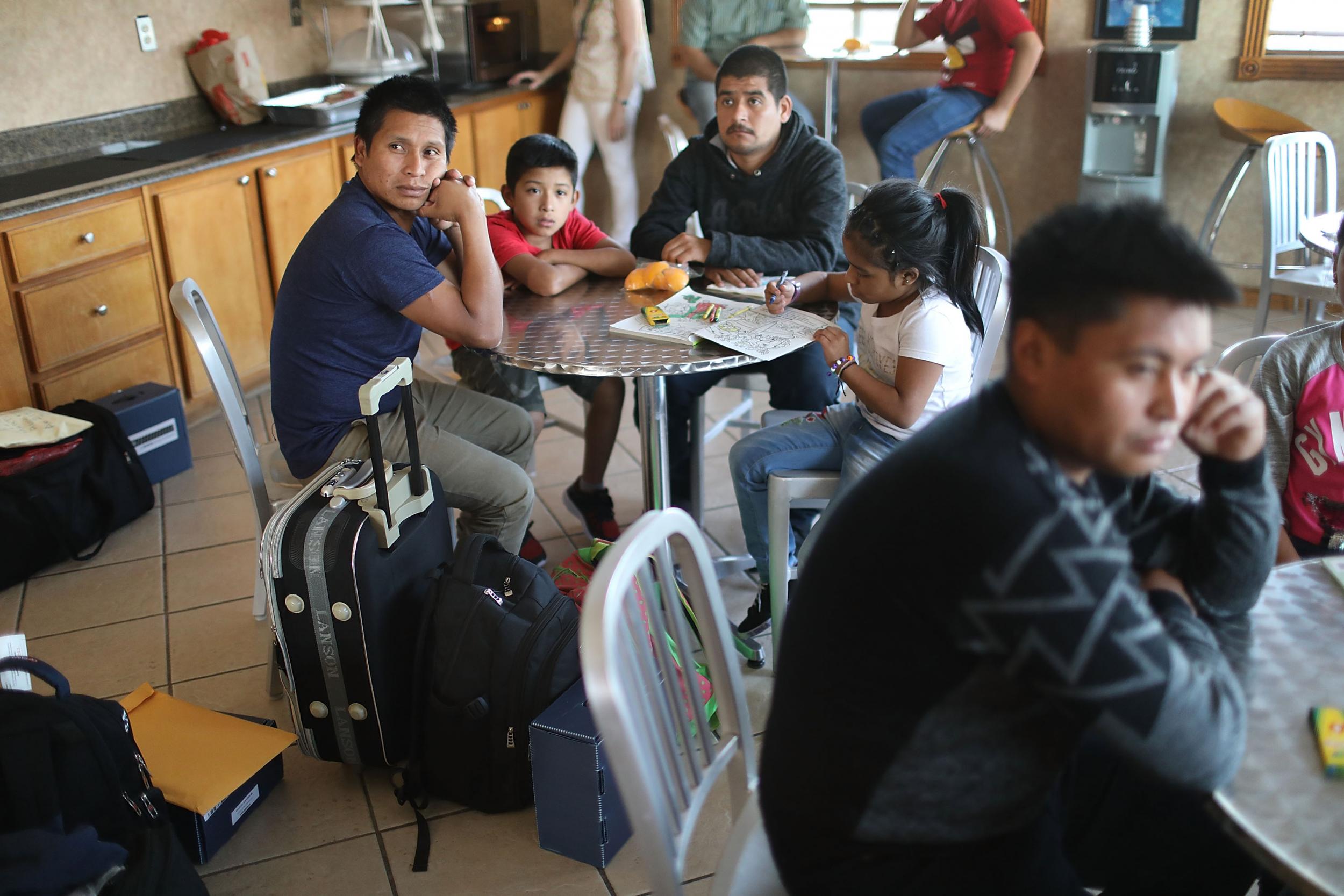'Chaos and confusion’ at US detention centres as Trump administration rushes to reunite migrant families
Government set to miss midnight deadline for reunifying families

Your support helps us to tell the story
From reproductive rights to climate change to Big Tech, The Independent is on the ground when the story is developing. Whether it's investigating the financials of Elon Musk's pro-Trump PAC or producing our latest documentary, 'The A Word', which shines a light on the American women fighting for reproductive rights, we know how important it is to parse out the facts from the messaging.
At such a critical moment in US history, we need reporters on the ground. Your donation allows us to keep sending journalists to speak to both sides of the story.
The Independent is trusted by Americans across the entire political spectrum. And unlike many other quality news outlets, we choose not to lock Americans out of our reporting and analysis with paywalls. We believe quality journalism should be available to everyone, paid for by those who can afford it.
Your support makes all the difference.US lawyers and activists have described “chaos and confusion” at immigrant detention facilities as the Trump administration scrambles to reunify the more than 2,500 migrant children it separated from their parents at the border in recent months.
The government is rushing to meet a Thursday night deadline set by US District Court Judge Dana Sabraw, who ordered all of the families reunified as part of a lawsuit brought by the American Civil Liberties Union last month.
As of Tuesday, officials said they had identified 1,634 parents possibly eligible for reunification with their children, and successfully reunified some 1,012 of them. The government was scheduled to provide an updated count to Judge Sabraw on Friday morning.
But the government also said more than 900 parents may not be eligible for reunification because they had waived their right to reunification, had criminal backgrounds, or were otherwise deemed unfit. Some 462 of those parents had already left the country, the administration said, though it was unclear whether they had volunteered to leave or had been deported against their will.
Lee Gelernt, the lead attorney on the case, took issue with this number, saying the Trump administration was "unilaterally picking and choosing who is eligible for reunification".
"We will continue to hold the government accountable and get these families back together," he said in a statement.
Immigrants’ rights groups warned that many of the parents who had left the country already may have done so under duress or coercion, or armed with bad information. Advocates described parents being pressured by Immigration and Customs Enforcement (ICE) to sign paperwork they didn’t understand, or being told that they would not be reunified with their children unless they agreed to be deported.
“The circumstance under which many of these decisions to perhaps sign for ones deportation were made under incredibly challenging circumstances,” Royce Murray, policy director of the American Immigration Council, told reporters.
She added that it would be impossible to know whether any of these parents had “willingly and knowingly” signed deportation paperwork without reviewing each case individually.
Maria Odom, vice president of legal services at Kids in Need of Defence, said she knew of one family in which the children arrived at a detention centre to be reunited with their mother, only to learn that she had already been deported. Ms Odom said her organisation had not been able to contact the children, ages 9 and 14, since their arrival at the detention centre.
“We are mentioning them as an example of how impossible it is, at the moment, to track these children who have been placed into the black hole of reunification,” she said.
Mr Gelernt said the ACLU would attempt to track down all 463 parents who had left the country and reunify them with their children. The ACLU has also asked Judge Sabraw to briefly stay the deportation of those families who have already been reunified, saying the parents need time to understand their legal rights and consider their options.
The majority of the families were separated under Donald Trump’s “zero tolerance” immigration policy, which the Justice Department implemented in April. The policy sparked a massive public backlash after video surfaced of families being detained in wire cages, and children sobbing after being taken from their parents.
Mr Trump signed an executive order ending the family separations in June, but more than 2,500 children had already been taken with their parents. Judge Sabraw set the strict deadlines for reunification that same month.
At a court hearing on Tuesday, Mr Sabraw commended the pace of the reunifications thus far, calling it a "remarkable achievement". But he chided the government for losing track of some parents, and for separating the families in the first place.
"Some of this information is unpleasant – the reality of a policy that resulted in a large number of families separated without keeping track of families or people," Mr Sabraw said, according to ABC News. "There has to be an accounting."
Join our commenting forum
Join thought-provoking conversations, follow other Independent readers and see their replies
Comments